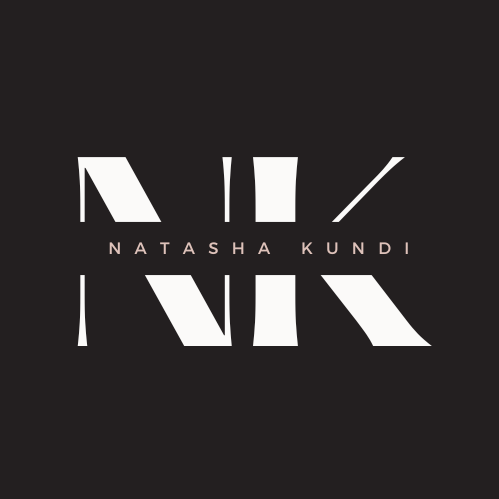Today’s dynamic economy requires businesses, freelancers and entrepreneurs to receive payments efficiently and securely in a variety of ways. Whether traditional methods like cash and cheques remain relevant, digital technology has introduced numerous innovative payment solutions for freelancers eager for payments for completed projects or businesses looking for ways to streamline financial transactions. Understanding all available payment options is important to ensure smooth finances moving forward.

Photo by Igal Ness on Unsplash
The Old-School Way: Cash
Nothing beats the nostalgia of cash transactions. They’re straightforward, widely accepted and provide instant gratification. Unfortunately though, handling large sums of cash can be frustrating to manage and could pose potential security concerns. Therefore it is best suited for smaller, face-to-face transactions between two parties in which both are present.
The Not-So-Humble Cheque
Remember those days when cheques were the go-to payment method? Writing one now seems almost ancient compared to instant messaging. While banks still accept cheques, their use often requires processing delays and cumbersome trips to the bank. But cheques remain viable options in certain industries, especially traditional ones.
Credit and Debit Cards: Redefining Payment Systems
Credit and debit cards have long been at the core of modern payment systems, providing convenience and security for payment worldwide. Their global acceptance makes them even more desirable, with rewards points on top, card payments have become ubiquitous. Businesses looking to implement card payment processing may find this set-up beneficial as customers can quickly swipe or tap with ease to complete purchases. Just be wary of processing fees which can eat away at their profits.
Bank Transfers: Reliable and Dependable
Bank transfers offer an easy, safe and direct means of sending and receiving large sums of payments. Thanks to Real-Time Gross Settlement (RTGS) and ACH transfers, money can quickly move between accounts. An especially popular choice among businesses because of their low processing fees and straight forward nature. Just make sure your account numbers and routing numbers are available.
Payment Processing SDK: Establishing Smooth Transactions
A Payment Processing SDK (Software Development Kit) provides developers with a versatile tool for easily incorporating payment features into their applications. SDKs provide various methods for handling transactions and also provide key features like tokenization, encryption and fraud detection to ensure security and compliance. Businesses can leverage a robust payment processing SDK to accept multiple payment methods such as credit and debit cards, digital wallets and bank transfers without incurring the costs and time associated with developing an entirely new payment system from scratch. Not only does this accelerate development cycles and enhance user experiences, customers can complete their purchases more confidently and efficiently than before.
Digital Wallets: Convenience in Your Pocket
Digital wallets like PayPal, Apple Pay and Google Wallet have revolutionized how we handle transactions. These convenient apps allow users to store card data securely on their smartphones and make payments instantly with just a few taps. Ideal for online shopping and quick transfers among friends, offering additional convenience and security. Just be sure to protect them with strong passwords or biometric locks.
Mobile Payment Apps: Popular among Millennials
Venmo, Cash App and Zelle have quickly become the go-to apps among younger generations for ease of use and speed in paying bills, friends or conducting small business transactions. Their social media-esque feeds and instant notifications add another level of social engagement into everyday transactions.
Cryptocurrencies: The Digital Gold Rush
Digital currencies like Bitcoin, Ethereum and Litecoin have quickly become legitimate payment methods for many forward-thinking businesses. Their decentralized nature offers lower transaction fees and increased security compared to more centralized methods. But their unpredictable market and regulatory uncertainties make crypto investments risky investments for conservative investors. But if you’re tech savvy and open to exploring the future, crypto might just be for you.
Invoicing Platforms: Professional and Painless
If your business entails freelancing or client-based projects, invoicing platforms like FreshBooks, QuickBooks and Invoice2go can make the payment process a lot smoother. They allow users to create professional invoices easily while tracking payment statuses and automating reminders. Plus features like integrated payment gateways ensure getting paid is just a click away.
Subscription Services: The Gift That Keeps on Giving
Businesses offering ongoing services or products may benefit from setting up subscription-based payment models as an enduring stream of income. By automating recurring payments, subscription-based models ensure a steady cash flow without the hassle of collecting payments manually. Platforms like Patreon, Substack and Shopify provide tools for effectively managing subscriptions so businesses can build loyal customer relationships more easily.

Photo by freestocks on Unsplash
Conclusion
The world of payments is vast and ever-evolving, offering various methods that suit individual needs and preferences. From classic cash and cheque transactions to digital wallets and cryptocurrency investments, understanding your payment options will enable you to select the optimal way of accepting them and maximize their effectiveness for growing your business and meeting financial goals. So what payment method will be your go-to option next time around?



